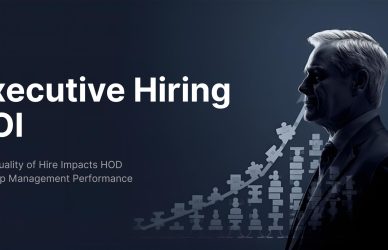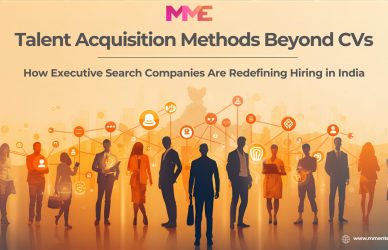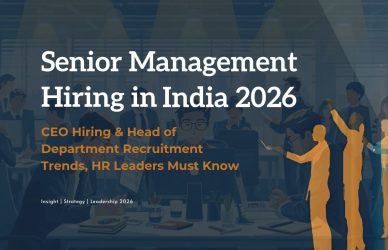Introduction: A New Dawn in Employment Models
The Evolving Global Workforce Landscape
The global workforce is experiencing an unprecedented transformation. Rapid digitalization, the rise of remote work, and the need for agility in volatile markets are prompting companies to rethink their employment strategies. Traditional models—rooted in long-term, location-based contracts and complex compliance structures—are no longer sufficient to meet modern business demands. As companies seek to tap into global talent pools while minimizing operational friction, a new solution is rising to the forefront: Employer of Record (EOR) services.
What Are EOR Services?
At its core, an Employer of Record (EOR) acts as a legal employer on behalf of another company. This allows organizations to hire employees in foreign countries without setting up a legal entity there. The EOR assumes responsibility for payroll, taxes, benefits, and local labor law compliance, freeing businesses from administrative burdens and legal risks.
The Strategic Shift Toward EOR
What began as a workaround for startups and small businesses looking to hire abroad has evolved into a mainstream strategy for enterprises of all sizes. EOR services are no longer seen as just a compliance tool—they’re strategic enablers that support global expansion, enhance operational flexibility, and accelerate talent acquisition.
Why This Marks a New Era
The increasing acceptance of distributed teams, along with evolving legal and regulatory landscapes, signals a broader shift in how organizations structure their global workforce. EOR solutions align perfectly with this change, offering a streamlined path to international hiring, agility, and compliance.
In this article, we delve into the rise of EOR services, their transformative role in modern employment, and why they signify the beginning of a new era in workforce management and global HR strategy.

What Are EOR Services? A Refresher
Defining Employer of Record (EOR) Services
Employer of Record (EOR) services are third-party providers that legally employ workers on behalf of a business. This means the EOR becomes the official employer in the eyes of the law, handling all employment-related responsibilities such as payroll, taxes, benefits administration, employment contracts, and compliance with local labor regulations. Meanwhile, the client company maintains control over the employee’s day-to-day responsibilities, performance expectations, and project outcomes.
Core Functions of EOR Services
EORs offer an integrated suite of employment solutions that simplify global hiring. Key features include:
Global Compliance: EORs ensure adherence to local labor laws, tax codes, employee classification rules, and statutory requirements—minimizing the risk of non-compliance in foreign jurisdictions.
Streamlined Payroll Management: They manage salary disbursements, bonuses, deductions, and tax withholdings accurately and efficiently, reducing administrative overhead for businesses.
Benefits Administration: EORs oversee statutory and optional benefits like health insurance, paid leave, social security, and retirement plans, tailored to the requirements of the specific country.
Risk Mitigation: By assuming legal employer status, EORs shield client companies from potential liabilities related to labor disputes, misclassification, or regulatory breaches.
EOR vs. PEO: Understanding the Difference
While often compared to Professional Employer Organizations (PEOs), EORs operate under a distinct model. PEOs function through co-employment arrangements, which necessitate that the client business has a legal presence in the country. EORs, by contrast, are the legal employers themselves—enabling businesses to hire internationally without establishing a subsidiary or branch office. This makes EORs the preferred choice for companies entering new markets quickly and compliantly.
Ideal Use Cases for EOR Services
EOR solutions are particularly valuable for:
- Startups and SMEs looking to test new markets with minimal legal and financial risk.
- Companies employing remote or hybrid teams across borders, without setting up global entities.
- Enterprises expanding operations into jurisdictions with complex or unfamiliar labor laws.
EOR as a Strategic Enabler
Beyond compliance and administration, EORs are now viewed as vital partners in business growth. They offer a faster, safer, and more cost-effective way to scale globally—positioning themselves as essential players in the future of employment models.

The Driving Forces Behind the EOR Revolution
The emergence of Employer of Record (EOR) services as a mainstream HR strategy is not a random development—it’s a response to major global shifts in how businesses operate, hire, and grow. These forces are reshaping the employment landscape and driving the rapid adoption of EOR solutions across industries. Here’s a closer look at the key catalysts behind the EOR revolution.
a. Remote Work and Globalization
The COVID-19 pandemic was a watershed moment for remote work. What began as a temporary solution quickly turned into a permanent shift, with organizations recognizing the value of remote, distributed teams. As physical office locations became optional, access to global talent became essential.
Companies now prioritize skills and expertise over geographical proximity. However, managing international hires presents legal and operational hurdles—especially around compliance, payroll, and employee classification. EORs step in as the legal employers in foreign jurisdictions, allowing businesses to onboard remote workers globally without establishing a physical presence. This flexibility has made EORs indispensable in the age of borderless employment.
b. Cost and Time Efficiency
Traditionally, entering a new market meant months of paperwork, regulatory approvals, and significant capital investment to create a local entity. For many companies—especially startups, SMEs, and project-based teams—this approach is not practical.
EORs offer a leaner alternative. By eliminating the need to establish a subsidiary, they drastically reduce the time and cost associated with international hiring. With EORs, businesses can onboard talent in days instead of months, enabling rapid expansion and operational agility. This efficiency is a game-changer for organizations seeking speed without sacrificing compliance or structure.
c. Changing Workforce Expectations
The modern workforce has evolved. Employees today value work-life balance, geographic flexibility, and tailored benefits. Cross-border opportunities are no longer rare—they’re expected. This shift demands a more nuanced, employee-centric approach to hiring and retention.
EORs help companies meet these expectations by delivering localized employment packages that align with each country’s labor norms. From healthcare to holidays, EORs manage benefits that are culturally and legally appropriate. At the same time, businesses retain managerial control, enabling a consistent organizational culture while honoring regional nuances.
d. Regulatory Complexity
Navigating the legal intricacies of global employment is a growing challenge. Countries are constantly updating employment laws—covering areas such as taxation, termination rights, data privacy, and social security obligations. The risk of non-compliance can result in fines, lawsuits, or reputational damage.
EORs serve as compliance experts, staying abreast of evolving laws in each jurisdiction they operate in. By handling everything from employment contracts to payroll taxes, they shield businesses from legal pitfalls and ensure smooth, lawful operations in any market.
e. Need for Rapid Market Entry
In sectors like technology, biotech, and digital services, speed is critical. Opportunities can be fleeting, and months-long delays in entering a market could mean missing out on competitive advantages. Traditional expansion strategies simply can’t keep up with this pace.
EORs allow companies to enter new markets almost instantly. With the infrastructure already in place, businesses can begin operations and revenue generation in new countries within days. This agility allows companies to stay ahead of the curve, respond quickly to market demands, and scale with confidence.
A Strategic Convergence
These factors—remote work, cost efficiency, workforce expectations, regulatory complexity, and the need for speed—are converging to redefine global workforce management. EOR services are no longer just operational tools; they are strategic assets enabling businesses to thrive in a dynamic, globalized world. As companies increasingly prioritize agility, compliance, and talent access, the EOR model stands out as a future-proof solution, ushering in a new age of smart, seamless global hiring.

EOR Services Across Industries: Expanding Horizons
Employer of Record (EOR) services are no longer niche offerings reserved for select startups or tech firms. They have evolved into indispensable workforce solutions, enabling organizations across a wide array of industries to scale globally, stay compliant, and tap into diverse talent pools without geographic limitations. Let’s explore how various sectors are leveraging EORs to drive growth and operational agility.
a. Technology and SaaS
The tech sector, particularly Software as a Service (SaaS) companies, has been one of the earliest adopters of EOR solutions. In an industry that thrives on speed, innovation, and global collaboration, EORs empower companies to hire top developers, designers, and IT professionals across borders without the hassle of setting up foreign entities. This enables rapid scaling, access to niche skills, and compliance with local employment laws—critical factors in maintaining a competitive edge.
b. Healthcare and Life Sciences
The healthcare and life sciences industries face stringent labor laws, ethical standards, and data privacy concerns, especially in international clinical research or medical staffing. EOR services allow organizations to deploy researchers, nurses, and administrative personnel across regions while ensuring full compliance with local labor and healthcare regulations. This model also supports quicker market entry for medical trials and product launches.
c. Finance and Fintech
Finance and fintech companies operate in some of the most regulated environments globally. Hiring talent in international markets involves navigating complex tax laws, data security mandates, and compliance procedures. EORs reduce the burden by handling employment contracts, payroll, and legal risks—allowing firms to focus on innovation, product delivery, and secure client service.
d. Manufacturing and Logistics
As manufacturers and logistics providers expand into new markets or set up warehouses and supply chains across borders, they often need to staff operations swiftly in unfamiliar legal environments. EORs streamline the process, managing local hiring, compliance, and benefits, which is particularly helpful in emerging markets with intricate labor codes.
e. Creative and Consulting Industries
Advertising agencies, design studios, and business consultancies increasingly work with international freelancers and experts. EORs help them legally engage global talent, pay them promptly, and offer localized benefits—without establishing costly infrastructure.
EOR services are proving to be the bridge between global ambition and local compliance—unlocking new horizons across every major industry.

The Technology Behind Modern EOR Platforms
The evolution of Employer of Record (EOR) services has been fueled by cutting-edge technology. No longer limited to back-office operations and manual processes, today’s EOR providers leverage advanced SaaS platforms to offer scalable, secure, and efficient solutions that power global workforce management. These digital tools are the backbone of modern EOR capabilities, enabling seamless experiences for both employers and employees.
Self-Service Dashboards for Clients and Employees
Modern EOR platforms offer intuitive self-service dashboards that provide clients and employees with real-time access to essential information. Employers can view onboarding status, payroll summaries, benefits enrollment, and compliance documents, while employees can access payslips, contracts, tax forms, and leave balances—all through a centralized digital interface.
Automated Payroll Systems with Tax Compliance Engines
At the heart of every EOR service is payroll management. Advanced platforms automate salary disbursements, bonuses, tax deductions, and local compliance requirements. These systems are equipped with tax compliance engines that dynamically adapt to local laws, minimizing errors and ensuring timely payments.
Global Benefits Administration Tools
Administering benefits across multiple countries can be complex. Modern EOR platforms simplify this with integrated tools that manage health insurance, retirement plans, paid time off, and statutory benefits. These tools are customized to local regulations, ensuring competitive, compliant packages for international employees.
AI-Driven Contract Management
Compliance requirements are constantly evolving. EOR platforms now use AI to draft, review, and update employment contracts dynamically. These systems monitor legal changes in various jurisdictions and automatically suggest updates, reducing legal risk and ensuring contracts remain up-to-date and enforceable.
Data Security and GDPR Compliance
With sensitive employee and financial data at stake, modern EOR platforms prioritize data security. They employ encryption, multi-factor authentication, and regular audits to safeguard information. Compliance with GDPR and other data protection laws is embedded into the platform’s architecture, ensuring trust and transparency.
Seamless Integrations and Scalability
Through APIs, EOR platforms integrate effortlessly with popular HRMS, ATS, and accounting software—such as Workday, BambooHR, and QuickBooks. This interoperability enables organizations to scale operations smoothly and manage their global workforce within a unified ecosystem.
As technology advances, EOR platforms are transforming from administrative tools into strategic HR assets—helping businesses expand, comply, and thrive in a global marketplace.

Choosing the Right EOR Partner: Key Considerations
As Employer of Record (EOR) services gain traction globally, businesses are presented with a growing number of providers to choose from. However, not all EORs are created equal. Selecting the right partner can make the difference between seamless international expansion and costly missteps. Here are the key factors to consider when evaluating an EOR partner.
a. Geographic Coverage
The first and foremost consideration is whether the EOR operates in the countries where you plan to hire. A provider with broad and deep geographic coverage ensures faster onboarding and better understanding of regional employment nuances. Look for EORs with a proven track record in your target markets and the ability to scale with your expansion strategy.
b. Compliance Expertise
Labor laws, tax regulations, and statutory benefits differ significantly from one jurisdiction to another—and they change frequently. A reliable EOR must have up-to-date legal and compliance knowledge to navigate these complexities. Ask about their legal resources, local partnerships, and how they stay informed about regulatory changes.
c. Technology and Integration
In today’s fast-paced business environment, seamless integration with existing HR and finance systems is vital. Choose an EOR that offers robust, cloud-based platforms with user-friendly dashboards for both employers and employees. Additionally, ensure their system can integrate with your tools like payroll software, HRIS, or accounting systems to streamline processes and reduce duplication.
d. Transparency in Pricing
EOR pricing models vary—some charge flat monthly fees, while others use a percentage-based structure. Regardless of the model, clarity is key. Ensure the pricing includes all administrative costs, taxes, benefits, and potential extras. Watch out for hidden fees related to setup, offboarding, or local filings that may accumulate over time.
e. Customer Support and Local Presence
Responsive, knowledgeable customer support can greatly impact your experience with an EOR. Opt for providers that offer dedicated account managers, multilingual support, and a local presence in each operational country. On-the-ground teams can help manage issues more efficiently and ensure adherence to local norms and practices.
Choosing the right EOR is more than a transactional decision—it’s about finding a long-term partner who can support your growth, ensure compliance, and deliver a positive experience for your global workforce.

Case Studies: Real-World Impact of EOR Services
Employer of Record (EOR) services have proven transformative across various industries and business sizes. From lean startups to large multinationals, companies are leveraging EOR solutions to simplify international hiring, ensure compliance, and accelerate strategic initiatives. The following real-world case studies highlight the diverse and meaningful impact of EOR services in action.
a. Startup Scaling Globally
A U.S.-based SaaS startup had ambitious plans to penetrate the Southeast Asian market but lacked the legal infrastructure to hire locally. Setting up subsidiaries would take months—time the fast-growing company couldn’t afford to lose. By partnering with an EOR, the startup successfully onboarded sales representatives in Singapore, Indonesia, and the Philippines within a week.
The EOR handled employment contracts aligned with local laws, set up statutory benefits such as health insurance and retirement plans, and ensured timely, compliant payroll. This allowed the startup to allocate its internal resources toward product localization and market entry strategies rather than administrative hurdles. The result was a smooth expansion with zero compliance issues, increased speed-to-market, and minimal overhead.
b. Enterprise Workforce Diversification
A European logistics enterprise aimed to strengthen its customer support and operational leadership in Latin America but didn’t want to invest in physical offices or navigate unfamiliar labor laws. Using EOR services, the company quickly hired experienced regional managers across Brazil, Argentina, and Colombia.
The EOR ensured full compliance with local labor regulations, administered competitive benefits packages, and managed ongoing payroll and tax obligations. This approach enabled the enterprise to diversify its workforce and expand regional expertise without increasing its corporate footprint. The initiative led to enhanced client engagement in new markets and significant cost savings compared to traditional expansion methods.
c. Post-Merger Talent Retention
Following a strategic acquisition in Brazil, a multinational healthcare group faced the challenge of retaining valuable employees without setting up a new legal entity in the country. The organization partnered with an EOR to manage the transition seamlessly.
The EOR rehired the acquired company’s employees under new contracts that preserved tenure, benefits, and compensation continuity. The process was completed with minimal disruption, ensuring employee satisfaction and avoiding costly legal and operational challenges. With the EOR managing compliance and HR administration, the healthcare group was able to maintain business continuity while integrating the new team into its global operations smoothly.
These case studies demonstrate how EOR services provide tailored, strategic support that reduces operational complexity, speeds up market entry, enhances compliance, and fosters workforce agility. From startups to global enterprises, EORs are helping companies unlock global talent and execute international strategies more efficiently than ever before.

The Future of EOR Services: What Lies Ahead?
Employer of Record (EOR) services are rapidly evolving to meet the growing complexities of global employment. As companies look beyond borders for talent and efficiency, EOR platforms are becoming more innovative, integrated, and strategic. Here’s a look at the future trends that are set to shape the next chapter of EOR services.
a. AI-Powered Compliance Engines
Artificial Intelligence is set to revolutionize compliance in global employment. Future EOR platforms will use AI to continuously monitor changes in local labor laws, automatically flag potential issues in employment contracts, payroll, or tax calculations, and suggest corrective actions in real time. This proactive compliance will significantly reduce legal risks and ensure consistent accuracy across jurisdictions.
b. Expansion Into Emerging Markets
EOR providers are expected to expand their presence in emerging markets such as Africa, Southeast Asia, and South America. These regions offer vast, untapped talent pools and are becoming increasingly attractive for companies seeking cost-effective, skilled labor. EORs will play a key role in enabling safe and compliant entry into these high-growth areas, bridging the infrastructure gap for global hiring.
c. Custom Benefits Offerings
One-size-fits-all benefits are no longer sufficient. The future of EOR services lies in offering highly customized, region-specific benefits packages that align with local employee expectations and legal standards. From mental health resources in Europe to wellness stipends in Asia, EORs will provide more flexible, demographic-sensitive benefit solutions to help employers attract and retain talent.
d. Integration with Total Workforce Solutions
The future EOR ecosystem will not operate in isolation. It will integrate with broader workforce platforms that include freelance, contractor, and gig worker management systems. These unified platforms will give companies a consolidated view of their entire workforce—permanent, temporary, or contract—enabling smarter talent planning and optimized labor strategies.
e. Decentralized Employment Models
As Web3 and blockchain technologies mature, EORs may begin supporting decentralized employment models. Token-based payroll, smart contracts, and blockchain-verified identities could streamline employment verification and compensation. These advancements could redefine how global employment is structured, particularly in industries leaning into decentralized platforms.
EOR services are no longer just about enabling cross-border hiring—they are becoming the foundation of a tech-enabled, agile, and truly borderless workforce strategy for the future.

Conclusion: Embracing the EOR Era
A New Chapter in Global Workforce Management
In an increasingly interconnected world, the ability to build, manage, and grow a global workforce is no longer a luxury—it’s a strategic imperative. Traditional employment models, bogged down by legal restrictions and geographical limitations, are giving way to a more agile approach. Employer of Record (EOR) services are leading this transformation, enabling businesses to hire talent anywhere in the world—quickly, compliantly, and cost-effectively.
Beyond Borders, Beyond Barriers
EOR services eliminate the need for businesses to establish local entities, removing the bureaucratic and financial burdens typically associated with international hiring. Whether it’s a startup aiming to validate a new market or a multinational expanding into new regions, EORs provide the infrastructure to act fast without compromising compliance.
This borderless employment model allows companies to prioritize talent over location, leading to more diverse, dynamic, and productive teams. In turn, employees benefit from localized support, benefits, and protections—regardless of where they’re based.
Strategic Partners for the Future
Modern EOR providers are more than administrative facilitators. They are strategic partners equipped with legal expertise, advanced technology, and deep knowledge of local labor landscapes. From managing payroll and taxes to crafting compliant employment contracts and administering region-specific benefits, EORs help companies focus on what truly matters—growing their business and empowering their people.
With the integration of AI, real-time data, and workforce analytics, EORs are set to play an even more critical role in the evolution of HR strategy and talent acquisition.
The Competitive Edge Starts Now
As the global employment landscape continues to evolve, companies that embrace the EOR model will gain a clear competitive advantage. They’ll be able to scale faster, attract top international talent, and remain compliant in complex legal environments—all without the typical overhead.
Final Thoughts
The EOR era has arrived, reshaping the way businesses think about global hiring. Those who adopt EOR services today position themselves not only for success in the present but as trailblazers in the borderless workforce of the future. Embrace the change—because the future of work is here, and it knows no borders.




